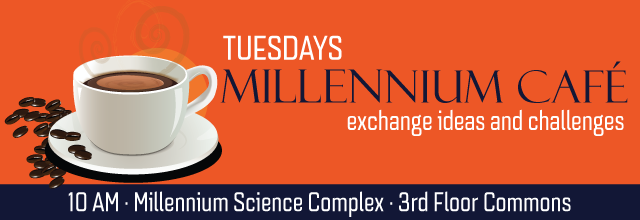
Chris Marone / Eliza Richardson | Geosciences
How have campus climate and faculty activities been impacted by the digital age and increasing pressure to complete research and teaching obligations off campus? What are the effects on Campus Life of research-related travel, task-overload, and pressure to publish? We have begun a discussion of these issues in the College of EMS and are interested in your thoughts about what the University can do to encourage an environment in which lab benches compete favorably with cyberinfrastructure for our attention and campus venues and activities compete favorably with email as a mode of collegial interaction among faculty, students, and staff.
